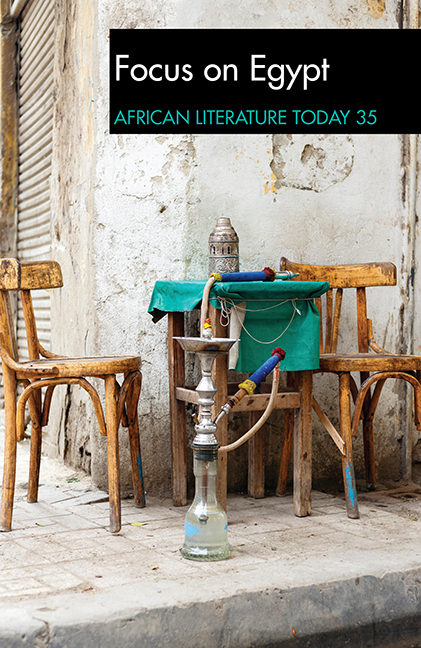Book contents
- Frontmatter
- Dedication
- Contents
- Notes on Contributors
- Foreword
- EDITORIAL ARTICLE
- ARTICLES
- FEATURED ARTICLES
- Little Magazines & the Development of Modern African Poetry
- Locating African & Diasporic Literatures in the Global Context
- The Postcolonial Writer & the Existential Ordeal
- LITERARY SUPPLEMENT
- TRIBUTE
- REVIEWS
- Reviews of Nigerian Poetry
Locating African & Diasporic Literatures in theGlobal Context
from FEATURED ARTICLES
Published online by Cambridge University Press: 24 August 2019
- Frontmatter
- Dedication
- Contents
- Notes on Contributors
- Foreword
- EDITORIAL ARTICLE
- ARTICLES
- FEATURED ARTICLES
- Little Magazines & the Development of Modern African Poetry
- Locating African & Diasporic Literatures in the Global Context
- The Postcolonial Writer & the Existential Ordeal
- LITERARY SUPPLEMENT
- TRIBUTE
- REVIEWS
- Reviews of Nigerian Poetry
Summary
Africanliterature is written through the author's worldview that isoften firmly rooted in the socio-cultural settings uponwhich the narration is based. The Nigerian author, ChinuaAchebe's assertion that African literature has never beenhomogenous in nature is indeed valid. As is already welldocumented in literary history, a number of the earlywriters such as the francophone writers Léopold SédarSenghor, David Diop and Birago Diop, or Anglophone writerslike Wole Soyinka and Ayi Kwei Armah, had the privilege ofstudying abroad. Senghor, along with other students, LéonDamas (French Guiana) and Aimé Césaire (Martinique) (seealso Rabbitt ‘In Search of the Missing Mother’: 36-54) werebrought together in Paris to produce L'EtudiantNoir journal between the 1930s and 1940s.Influenced by Edward Blyden's African Personality Concept(Frenkel ‘Edward Blyden and the Concept of AfricanPersonality’: 277-89), for which Léopold Sédar Senghorcalled Blyden the ‘foremost precursor both of Négritude andof the African Personality’ (‘Foreword’: xvxxii), Senghor,Césaire and Damas founded the NégritudeMovement in the 1930s. David Diop (Aitken and RosenhaftBlack Germany: 191-92), who wroteavant-garde poems such as the collection of poems calledCoups de pilon(‘Pounding’,1956) that denouncedEuropean hegemony over the African people and theircultures, and Birago Diop, who is known for his lyricalpoems and who also extolled the African past through hiscollection of folk tales and legends of his Wolof people,notably Les Contes d'Amadou Koumba(Tales of Amadou Koumba, 1947), wereactively involved in the movement. The trajectories ofSoyinka's and Armah's literary developments were alsosimilar. While Soyinka studied at the University College,Ibadan, he also went on to study at the University of Leeds(1954-57), and Armah studied at the Groton University andHarvard University in Massachusetts in USA. Armah's book,The Beautyful Ones Are Not Yet Born(1968) that highlights the post-independent feelings ofdisillusionment in most of the newly independent Africancountries remains a classic to date. Helen Oyeyemi, likethese authors, was born in Nigeria and studied in Englandwhere she wrote her first book The IcarusGirl about a young girl called Jessamy who isan abiku/twin. Thisabiku/twin story differs from the previousones written by Okri and Emecheta because it begins in thediaspora, away from the African traditional rites performedfor such special children.
- Type
- Chapter
- Information
- ALT 35: Focus on EgyptAfrican Literature Today 35, pp. 191 - 214Publisher: Boydell & BrewerPrint publication year: 2017

